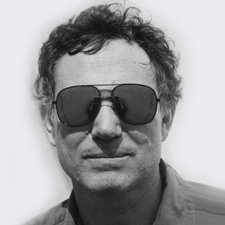Lies
"At some point when I was in high school I lost my draft card, and my folks changed houses, and I think there was a period of two years there, or three years, or four years, when the Army lost me. They couldn't find me."
| Series | |
|---|---|
| WBAI And NPR Playhouse | |
| Original Broadcast Date | |
| 3/06/1982 | |
| Cast | |
| Mark Hammer, F. Murray Abraham, Barbara Sohmers, Christina Moore, Tim Jerome, Arthur Miller, Jane Hunt, Joe Frank | |
| Format | |
| 1 hour | |
| Preceded by: | Questions |
| Followed by: | A Tour Of The City (Part 1) |
Lies is the name of a program Joe Frank produced as part of the series WBAI And NPR Playhouse. It was originally broadcast in 1984.
Synopsis
- A guy avoids the draft by pretending to take drugs.
- A military intelligence officer at a translation center in Vietnam during the war.
- A pair of radical women screw up a revolutionary bank robbery and go on the run.
- A man talks about having been politically active.
- A man meets a woman in a deli; "it had the cadence of witty repartee without the wit;" her roommate makes bagel and cream cheese paperweights, he goes to her place later. She tells him about a rape long ago, about a marriage to a man who shits in bed.
- Joe is a social climbing night watchman, lists things he must do every night, discusses office people.
- Scenes from the office - a board room filled with terror, one with giggling idiots, a woman shouts colors against a background of machinery.
- Joe buries his boss and takes his place.
Miscellanea
The first 30 minutes of the 1985 Martin Scorcese comedy After Hours plagiarizes the plot setup and portions of woman-in-the-deli segment from "Lies". Joe recounts learning about this plagiarism in the 90 minute version of No Show, and his decision to accept a settlement and remain uncredited on the film. Coincidentally, Larry Block appears as a taxi driver in the film, a role that originates with this episode.
The "fugitive radical women" segment appears to have been inspired by Susan Edith Saxe and Katherine Ann Power, who committed robberies in 1970.
Music
- "Ceres Motion" - Mother Mallard's Portable Masterpiece Co. (from Mother Mallard's Portable Masterpiece Co., 1973) | YouTube
- "T on a White Horse" - Eberhard Weber (from The Following Morning, 1977) | YouTube
- "Part One" - Philip Glass (from Music in Twelve Parts, 1976) | YouTube
- "Music For 18 Musicians" - Steve Reich (from Music For 18 Musicians, 1978) | YouTube
- "I Will Wait For You" - Mantovani (from To Lovers Everywhere, 1971) | YouTube
Commentary
Please see guidelines on commentary and share your personal thoughts in this section.
